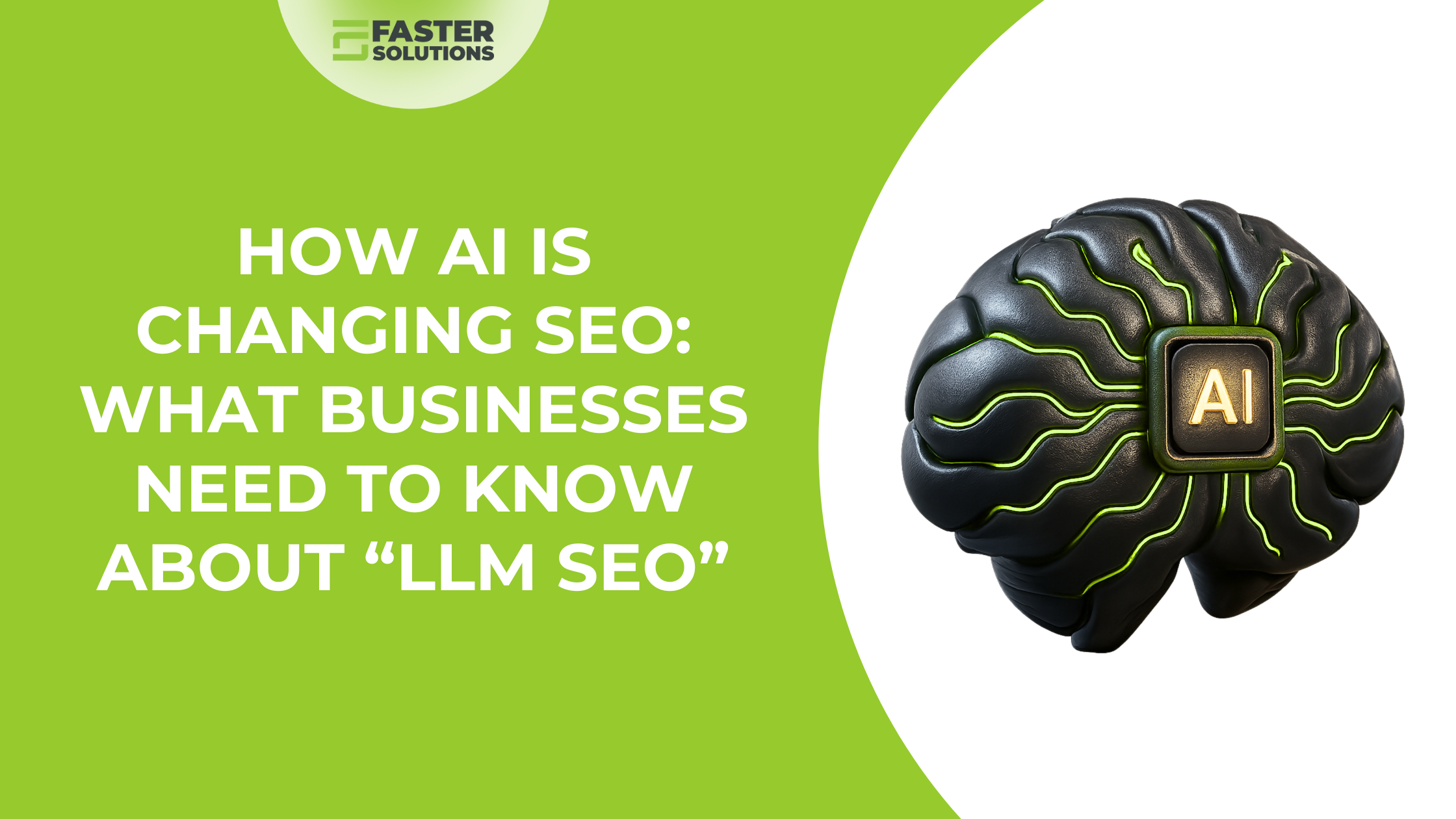
In today’s rapidly evolving technological landscape, the integration of Artificial Intelligence (AI) into business operations presents both opportunities and challenges. While AI regulatory compliance is not yet fully defined, governments at all levels are actively working to establish laws and regulations in this domain. In the meantime, it is crucial for organizations utilizing AI and machine learning models to ensure compliance with existing consumer protection and privacy laws.
At Faster Solutions, we specialize in developing AI-driven solutions tailored to your business needs, prioritizing safety, reliability, and legal compliance. Our dedicated marketing team can provide expert guidance on implementing AI safely in your digital marketing strategy. Let’s embark on this journey together, navigating the evolving landscape of AI compliance to drive success in the digital age.
Here are key considerations when it comes to AI compliance:
1. Data Privacy and Protection Compliance:
- Ensure adherence to data protection regulations.
- Establish protocols for data anonymization and encryption to safeguard sensitive information.
2. Ethical AI Use:
- Implement guidelines to prevent bias in AI algorithms.
- Conduct regular audits to ensure fairness and transparency in AI decisions.
3. Transparency:
- Maintain clear records of data inputs, algorithmic processes, and decision-making flows.
- Provide transparent disclosures about AI usage to customers and stakeholders.
4. Accountability:
- Assign AI governance roles to oversee operations and ethical standards.
- Develop a framework to address any issues or misuse of AI technology promptly.
5. Security Measures:
- Protect AI systems from unauthorized access and cyber threats.
- Regularly update and patch AI systems to mitigate vulnerabilities.
6. Compliance with International Standards:
- Adhere to standards such as ISO/IEC 27001 for information security management.
- Ensure AI practices meet industry-specific regulatory requirements.
7. Employee Training and Awareness:
- Train staff on the ethical and responsible use of AI.
- Keep teams updated on the latest AI compliance requirements and best practices.
8. Impact Assessment:
- Conduct regular assessments to evaluate the effects of AI on various aspects of business and society.
- Document and address any negative impacts identified promptly.
Why AI Compliance is Essential:
- Risk Management: Minimize legal and reputational risks associated with AI misuse or malfunction.
- Trust Building: Transparent and ethical AI practices enhance trust among consumers, partners, and regulatory bodies, bolstering corporate reputation.
- Regulatory Compliance: Ensure compliance with evolving international, federal, and state regulations to avoid fines and sanctions.
- Operational Integrity: Maintain consistency and reliability in AI-driven operations, ensuring effectiveness and safety.
- Innovation Management: Foster innovation aligned with corporate values and societal norms while adhering to clear compliance guidelines.
How AI Can Help Your Marketing Strategy
AI offers significant benefits to your marketing strategy by simplifying tasks and streamlining workflows, leading to increased efficiency and reduced costs. For instance, it serves as a valuable research assistant, summarizing information from multiple sources and providing topic suggestions to overcome creative blocks, making content creation more efficient. Additionally, AI optimizes advertising campaigns by analyzing data for effective targeting and placements. AI-powered chatbots enhance customer service by providing personalized support while analyzing behavior patterns allows for strategy adjustments. Lastly, AI automates repetitive tasks like data analysis and reporting, freeing up time for creativity and strategy development.
Things To Watch Out For
Biased Language and Content:
Unchecked AI can inadvertently perpetuate stereotypes and biases in marketing content. Implement measures to identify and correct biases before dissemination to maintain ethical standards.
Ad Bias:
Instances of biased ad delivery highlight algorithmic discrimination concerns. AI-driven algorithms may reinforce bias in ad distribution. Marketers must monitor and adjust algorithms to ensure fair ad delivery.
Misinformation:
AI-generated misinformation poses challenges to online integrity. Marketers must verify AI-provided information rigorously to prevent the distribution of false information, safeguarding your company’s credibility and trust.
Security:
With the growing reliance on AI, data security has become paramount. Marketers must implement stringent measures to protect customer data from breaches.
Navigating Compliance Requirements:
AI intersects with compliance regulations like HIPAA and GDPR, necessitating adherence to privacy and data protection standards. Human oversight is crucial in ensuring compliance and mitigating risks effectively.
By safely implementing AI, businesses can harness the benefits of AI while ensuring ethical and effective practices. At Faster Solutions, we understand the importance of ethical AI usage in marketing. Contact our team today to learn more about how we can help you navigate AI compliance challenges and optimize your marketing strategies for success.





